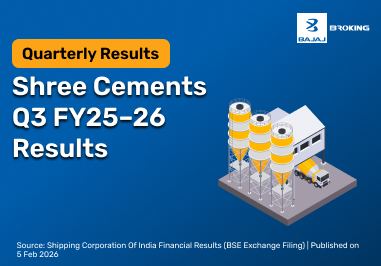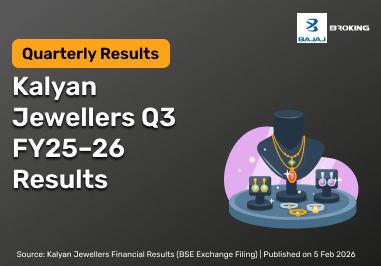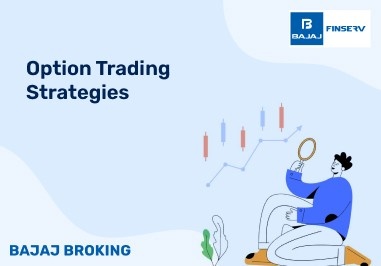The stock market loves its ratios. P/E, P/B, ROE — the list never ends. Each one tries to capture a piece of a company’s story in numbers. One ratio that often pops up in valuation discussions is the Price-to-Sales ratio, or simply the P/S ratio.
It sounds technical, but really, it’s just about how much value the market attaches to every rupee a company earns through sales. Almost like asking: for each coin of revenue, what price tag does the market slap on the business?
What is Price to Sales Ratio?
Also called the sales multiple or revenue multiple, the P/S ratio measures how the market values each rupee of sales a company generates. It is calculated by dividing the company’s market capitalisation by its total sales over the last 12 months. Sometimes, analysts prefer a per-share view: stock price divided by sales per share.
The number itself doesn’t mean much in isolation. Where it becomes useful is in comparisons. For example, two companies in the same sector may have very different P/S ratios. A lower one could hint at undervaluation, while a higher one might suggest overvaluation — though the context always matters.
How to Calculate P/S Ratio?
Here’s the simple breakdown:
Step 1: Find the company’s market capitalisation (share price × total outstanding shares).
Step 2: Look up the company’s total sales revenue from its financials (usually the past 12 months).
Step 3: Divide the market cap by the sales figure. The result is the P/S ratio.
Alternative approach: On a per-share basis, divide the current share price by sales per share (total sales ÷ number of shares).
Interpretation: A low ratio may indicate undervaluation, while a high ratio could mean overvaluation — but only when compared within the same industry.
Examples of the Price-to-Sales Ratio
Let’s take two companies in the same sector:
Company A: Market cap ₹10,000 crore, sales ₹5,000 crore. P/S ratio = 2.
Company B: Market cap ₹8,000 crore, sales ₹10,000 crore. P/S ratio = 0.8.
Observation: At face value, Company A is priced at 2 rupees for every rupee of sales, while Company B is priced at less than one rupee per rupee of sales.
This comparison makes sense only within the same industry. Cross-sector comparisons can mislead.
Advantages of the Price to Sales Ratio in Finance
Here is a list of some of the advantages that the P/S ratio offers investors:
Simple
The P/S ratio is a straightforward market assessment that helps determine how valuable a company's revenues appear to it. By comparing the P/S values of companies from the same sector, investors can make informed investment decisions.
Within industry comparisons:
The P/S ratio works wonders when it comes to comparing companies within the same industry or sector and helps investors figure out whether or not a company’s financial health aligns with the industry standard.
More stable
Since the P/S ratio takes the sales or revenue of a company into consideration, it is a more stable valuation when compared to other ratios that take earnings into account. Earnings of a company can fall prey to accounting issues or malpractices as a result of which the final valuation can remain unstable.
Early warning indicator
The great part about the P/S ratio is that it acts like an early warning system that helps investors steer clear of any companies whose ratios are overvalued and in turn set unrealistic valuations when it comes to their profit.
Limitations of Price to Sales Ratio
Ignores profitability: Two firms may show the same P/S, but one could have wafer-thin margins while the other enjoys healthy profits.
Less effective across sectors: Comparing a tech firm’s P/S with a steel company’s isn’t meaningful. Industries operate differently.
Excludes debt: Since it looks only at sales and market value, it overlooks debt — a highly indebted firm can look deceptively “cheap.”
Not ideal for all companies: Start-ups or early-stage firms prioritising growth may have high P/S ratios that don’t reflect their long-term potential.
Significance of the Price to Sales Ratio in Investment Theory
Why does this ratio matter at all? Because it helps investors cut through some of the noise.
Consider companies that don’t have steady profits — think new-age tech firms. Traditional valuation tools like P/E don’t always work because earnings are volatile or even negative. But revenue? That’s often more consistent. Here, the P/S ratio steps in as a useful proxy.
It also acts as a leveller. By standardising value against sales it allows analysts to quickly scan which firms the market prices richly and which ones are being ignored. A pharmaceutical company trading at 5x sales looks very different from a peer at 1.2x. Is the first overpriced? Or is it simply reflecting stronger growth prospects and better margins? The ratio alone doesn’t answer — but it asks the right questions.
Another aspect is investor psychology. Markets often chase sales growth as a story, especially in high-growth sectors. The P/S ratio can reveal when optimism turns into over-optimism. A sharp spike in the ratio, without matching improvements in margins, may be a red flag.
But caution: it’s never a standalone signal. No serious investor would buy or sell purely on the basis of P/S. Instead, it blends into a toolkit of ratios — P/E, EV/EBITDA, P/B — to give a fuller picture. Think of it like a compass: it points in a direction, but you still need a map.
What Is Enterprise Value-to-Sales (EV/Sales)?
A close cousin of the P/S ratio is the EV/Sales ratio. Here’s how it differs:
Definition: EV (Enterprise Value) includes not just market cap but also debt and cash adjustments.
Formula: EV ÷ Sales = EV/Sales ratio.
Why it matters: Unlike plain P/S, this ratio captures debt levels. A company heavily funded by loans may look cheap on P/S, but EV/Sales reveals the full picture.
Use case: Analysts often prefer EV/Sales for capital-intensive sectors where debt plays a big role.
Conclusion
The Price-to-Sales ratio is simple, but simplicity can be powerful. It tells you how much investors are willing to pay for every rupee of a company’s sales. At the same time, it has blind spots — profitability, debt, and industry differences all matter.
So treat it as one lens among many. Use it to compare, to question, to cross-check. Numbers rarely give all the answers, but they nudge you towards better ones.















